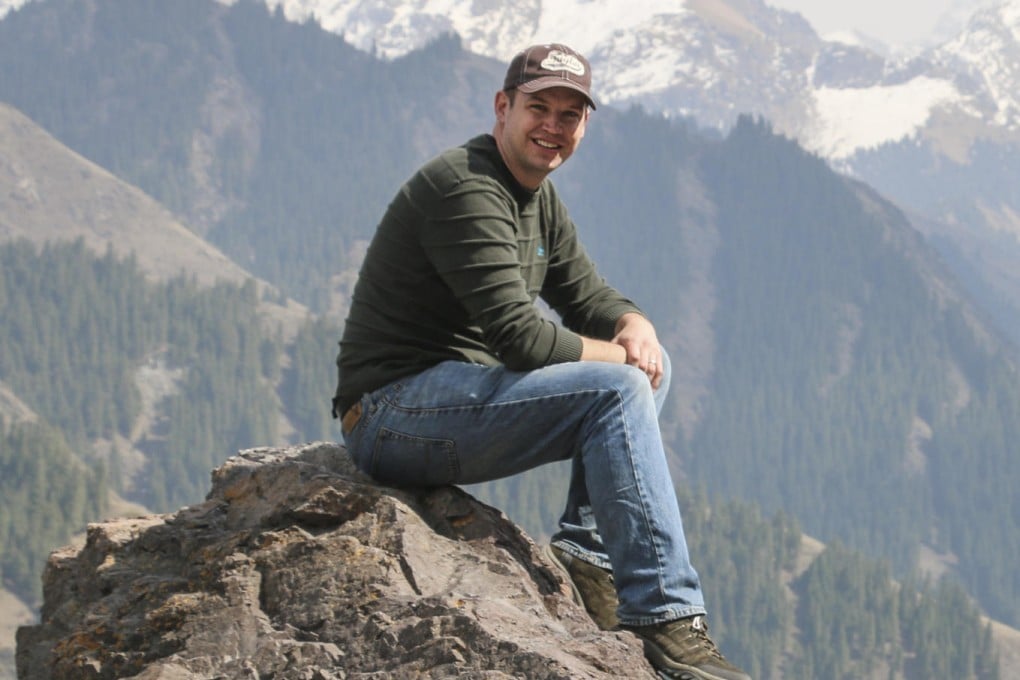My life: Josh Summers
The Urumqi-based blogger tells Jenni Marsh about the bright side of Uygur culture and raising a family in a region that’s been marred by unrest.

I'm a Texas boy, born and bred, so it's interesting I ended up in Xinjiang. There's quite a few correlations between the two: the Wild West nature, the large, unpopulated expanse, the adventure of it all. Growing up, I was not familiar with China. Two months after I graduated from Belmont University, Nashville, I married my high school sweetheart, Tiffany. We wanted to move overseas, but the only opportunity that came up was China. A professor my wife knew had visited Karamay (in Xinjiang) in the 90s and made a connection who needed English teachers. He described an oasis in the middle of the desert that had mountains and beautiful people. Back then (in 2006), I could have barely pointed at Shanghai on a map.
Karamay is an oil town, four hours northwest of Urumqi, and it's literally in the middle of nowhere. There is no water source, the only thing here is oil - in Uygur " karamay" means "black oil". Sixty years ago, it didn't exist, but today it's one of the richest cities per capita in China. It's not a big place at all. I could ride my bike to the city's edge in 20 minutes, and there would be a 15-storey building on one side of the road and, on the other side, plain desert.
Our first apartment wasn't comfortable. I remember falling onto the bed and hurting my face, because it was just a sheet on top of a piece of plywood. And the wind was fierce; some days, school was cancelled because the wind would suck out classroom windows. We couldn't read the menus - ordering was a roulette. I'll never forget the day we walked into a store and found peanut butter. I turned to my wife and said, "A peanut butter and jelly sandwich. We're going to survive."
All you need to be a teacher in Xinjiang is a white face. In Karamay, we were two of only six foreigners in the city of (then) 200,000 people, and they confined us all to one building. There was a constant barrage of people asking us to teach English to their children. In the beginning, the Security Bureau followed us and would ask our friends questions about what we were doing to make sure we weren't spies. Even the government official who was following us asked me to teach his son English.
Becoming the first foreigner to get a driver's licence in Karamay gave us freedom. I had to knock down doors to get it. I passed my written and driving test for my motorbike and went to pick up the documents. They said, "Come back next week." So I did and was told the same. The third week, I snapped. I yelled at her in broken Chinese, "I'm not leaving until you give me my licence." Five minutes later, she came back with it. It had been sitting there the whole time. After that, my wife and I took trips into the desert. We'd pitch our tents where no person had before and watch as a herd of wild camels walked through our camping area.
On July 5, 2009, I got a call saying, "Check the internet, lock your door and stay inside." The fear in my friend's voice sent chills down my spine. I spent nine hours on the internet that night trying to figure out what was going on in Urumqi. Those hours were the last I spent online for 10 months. We'd never sensed serious tensions between the Han and the Uygur, so the Urumqi riots (in which 197 people died) were a shock to us. Three days later, I had the freakiest moment when I walked outside and every shop was closed in the middle of the day. Rumours spread that people had fled north and there was a huge insurgence of security forces. A few days later it was back to normal. It took us a while to realise it was a serious internet blackout. In Xinjiang, things constantly didn't connect, so that first morning wasn't cause for alarm. Then we realised we couldn't send text messages, or call internationally. My favourite memory is the US embassy in Beijing calling my cellphone. "Are you OK?" the lady asked. "Your mum won't stop calling us."